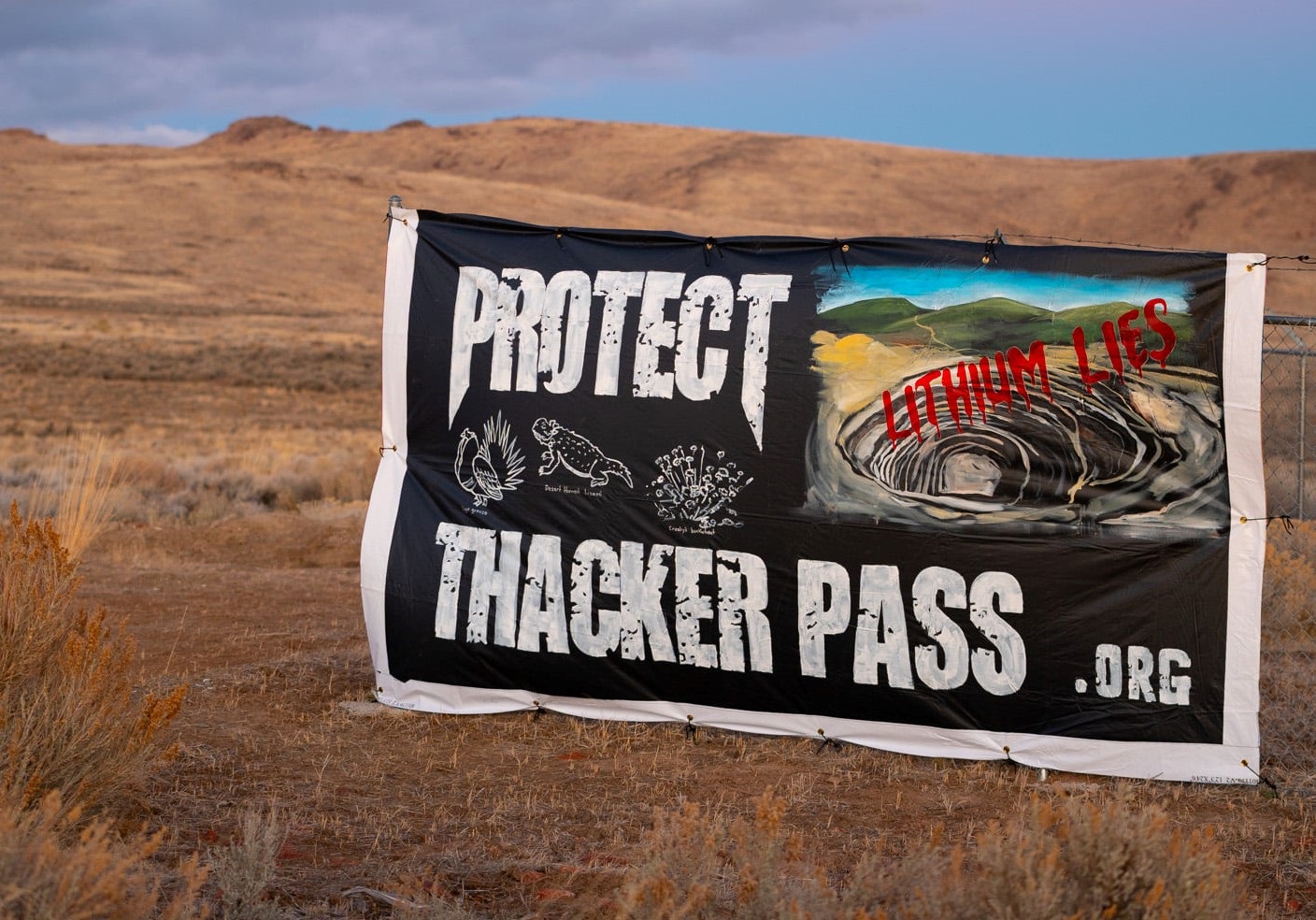
Human Rights Watch (HRW) charged Feb. 6 that the US government’s decision to permit Lithium Americas company to mine at Thacker Pass in Nevada violated indigenous people’s rights by failing to obtain free, prior and informed consent (FPIC) in accordance with international law.
The 133-page report determined that the Bureau of Land Management (BLM) permitted the lithium mine without the FPIC of the Numu, Nuwu and Newe peoples. In the 2021 BLM decision to approve the mining project, the agency stated it had been contact with tribal governments since 2018 and that “[n]o comments or concerns have been raised during formal government to government consultation for the project by the tribes.” HRW’s report challenges that assertion, claiming there was no meaningful consultation, and that US courts have rebuffed all efforts by affected indigenous peoples to challenge the adequacy of the consultation process. The extent of the consultation, HRW alleges, was just three rounds of mailings sent to three tribal governments.
Thacker Pass contains one of the largest known lithium deposits in the world. The project sprawls over 18,000 acres of Numu, Nuwu and Newe ancestral lands. It has also received state level permits, but has been slowed by several lawsuits from indigenous peoples and advocacy groups. All of these lawsuits have failed, including a case alleging the BLM did not adequately consult with indigenous peoples as required under the National Historic Preservation Act. That act requires consultation for development projects on indigenous lands with religious or cultural significance.
As the report notes, US law on indigenous consultation falls well short of the FPIC standard required under international law. FPIC is a fundamental principle of international human rights law embodied in the UN Charter and the International Covenant on Civil & Political Rights. But the right is most clearly defined in the UN Declaration on the Rights of Indigenous Peoples (UNDRIP), which the United States has officially supported since 2011. Article 32 of UNDRIP states:
States shall consult and cooperate in good faith with the indigenous peoples concerned through their own representative institutions in order to obtain their free and informed consent prior to the approval of any project affecting their lands or territories and other resources, particularly in connection with the development, utilization or exploitation of mineral, water or other resources.
Thacker Pass has an important history for local indigenous peoples, being the site of a massacre committed against Numu, Nuwu and Newe by the US Union Army in 1865. The report connects this legacy to the current development of the lithium mine, stating: “The Thacker Pass lithium mine is both tied to violent US settler colonialism and a new era of resource exploitation.”
From JURIST, Feb. 6. Used with permission.
See our last reports on Thacker Pass and the global struggle for lithium.
Photo: Protect Thacker Pass




